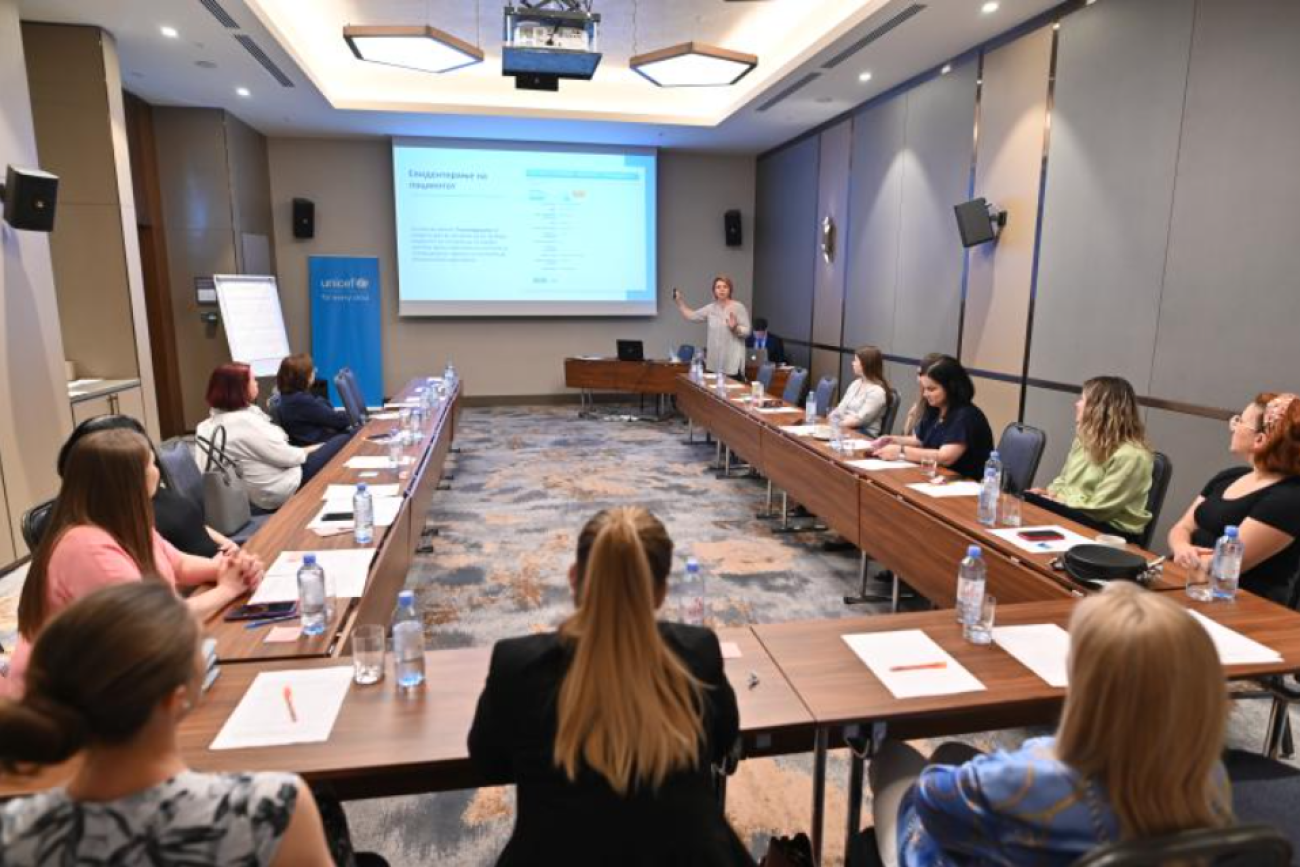Family doctors advance their knowledge on telemedicine to help build a more resilient primary health care system

UNICEF is supporting family doctors to provide telemedicine services to children and families with children with disabilities, families at risk
Skopje, 25 July 2022: UNICEF and the Ministry of Health in partnership with the Macedonian Medical Association are supporting a series of training workshops to build the knowledge and skills of family doctors in effective use of technology to deliver care at a distance. Telemedicine is the practice of medicine when a physician in one location uses a telecommunications infrastructure to deliver care to a patient at a distant site.
This initiative aims to provide alternative to the traditional face-to-face health consultations in the cases when physical presence is not possible, or is not necessary, and to increase equitable access to health care services regardless of location for all families.
During the COVID-19 pandemic families faced massive disruptions within health care, both directly as a result of the infectious disease outbreak, and indirectly because of public health measures to mitigate transmission. This led to a significant reduction of health service delivery to children and families. Digital technology and new models of care have been rapidly deployed in many countries to address these challenges of the pandemic and have proven to be efficient in ensuring the health systems are resilient to future disruptions.
Recognizing that digital health interventions are not a substitute for functioning health systems, telemedicine is primarily beneficial in providing health care service to those living in remote areas and vulnerable, especially families with children with disabilities and families at risk. It can help prevent unnecessary referral of patients between various health service levels, reduce the burden on the health care system beyond COVID-19 pandemic, spare families from financial hardship of traveling to receive services and avoid crowded waiting rooms. However, telemedicine is not to replace face to face consultations but to complement them.
So far some 150 family doctors participated in the workshops focusing on three main areas: key principles of telemedicine; development of skills to effectively communicate with patients on distance; and practical use of the telemedicine module through the state electronic system “Moj termin”.
The workshops are accredited and certified by the Medical Chamber of the Republic of North Macedonia, and upon successful completion, family doctors will be able to register the health records through a software developed by World Health Organization in the telemedicine option in “Moj termin”. By the end of the year, it is expected that 70% of family doctors will build their capacity to provide telemedicine services for children and their families.
The Telemedicine programme component is part of UNICEF broader support to the Ministry of Health and is funded by the United States Agency for International Development.

